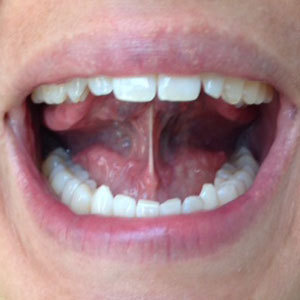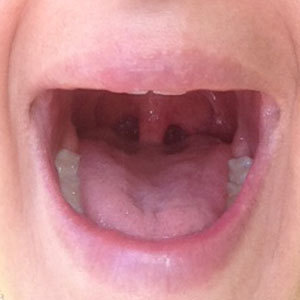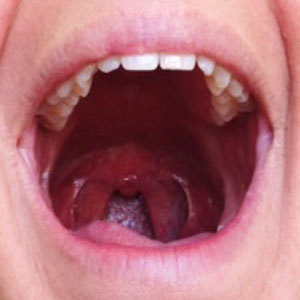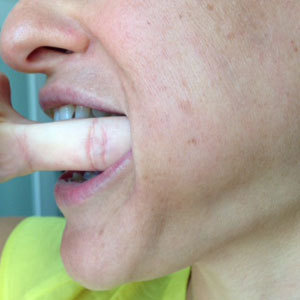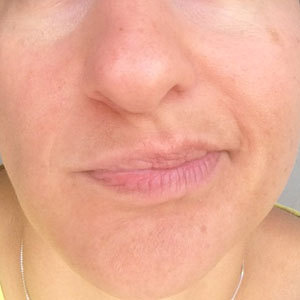6 Mouth Exercises To Help You Snore Less.
Notes from Dr. Norman Blumenstock:
In our office we find that these exercises enhance the efficacy of the oral appliances.
By Sara Schwartz / 06/25/2015 2:13 pm EDT
Bedmates of snorers, listen up: You may be able to retire those sleep-saving earplugs for good. A study released in May 2015 found that certain tongue and mouth (oropharyngeal) exercises effectively reduce snoring frequency by 36 percent and “total snoring power” by 59 percent. Sleep specialists are encouraged.
“This is a brand new field called oral myofunctional therapy,” which includes exercises for the soft palate and tongue, says sleep specialist Robert Rosenberg, D.O., F.C.C.P., medical director of the Sleep Disorders Center of Prescott Valley, Arizona, and author of “Sleep Soundly Every Night, Feel Fantastic Every Day.” “Most studies show improvement after three months, but keep in mind this is very new and there are not many studies available.”
The Problem with Snoring
About 37 million adults in the U.S. regularly snore, a problem that worsens as you age, according to the National Sleep Foundation. The main culprit behind the noise is relaxed throat muscles, which cause the inner walls of your throat to become narrower, creating vibrations when you breathe. When the walls completely collapse, blocking your airway and usually startling you awake to breathe, that’s known as obstructive sleep apnea.
Chronic snoring may be more than just a nighttime nuisance. “In the absence of sleep apnea the main complication is disturbing your partner’s sleep,” says Dr. Rosenberg. “However, there are some studies that have demonstrated that snoring alone can cause carotid artery disease and fatigue.”
Who Should Try This Therapy
If you are a mild to moderate snorer, haven’t been diagnosed with sleep apnea, and are otherwise healthy, Dr. Rosenberg recommends trying oropharyngeal exercises. “They’re simple, safe, inexpensive, and effective,” he says. “Anyone who has 10 to 15 minutes to spare daily to practice these techniques is a good candidate.”
Without further ado, read on for six exercises from the study (with names we made up to identify them) that lessened participants’ nightly buzzsaw.
A Second Opinion
Exercising the muscles that keep your airway open could prevent sagging-related snoring, says W. Christopher Winter, M.D., a board-certified sleep medicine doctor and neurologist practicing at Charlottesville Neurology and Sleep Medicine in Virginia. “If you dedicate the time, the exercises can help,” he says. “If you couple it with avoiding alcohol at night and losing five pounds, they can be more effective.”
Dr. Winter acknowledges that doing the exercises day in and day out is not practical for the average patient, but that there’s no reason not to try them, even if you eventually seek an alternate solution.
Alternatives to Consider
If oropharyngeal exercises don’t work for you, Dr. Rosenberg suggests alternative therapies, including weight loss, positional therapy such as sleeping at a 30-degree angle or avoiding sleeping on your back, giving up alcohol at night, quitting smoking, using a nasal strip such as BreatheRight, and finally, surgery.
For more information on snoring therapies, visit Sleepfoundation.org.


